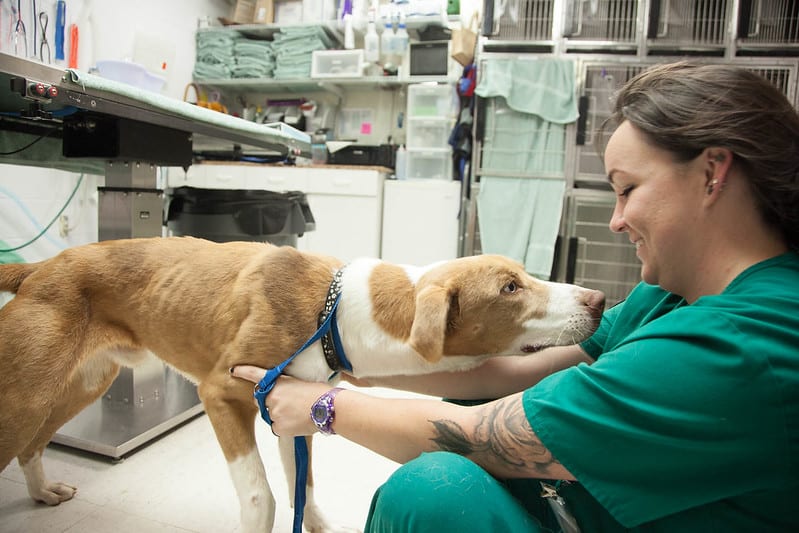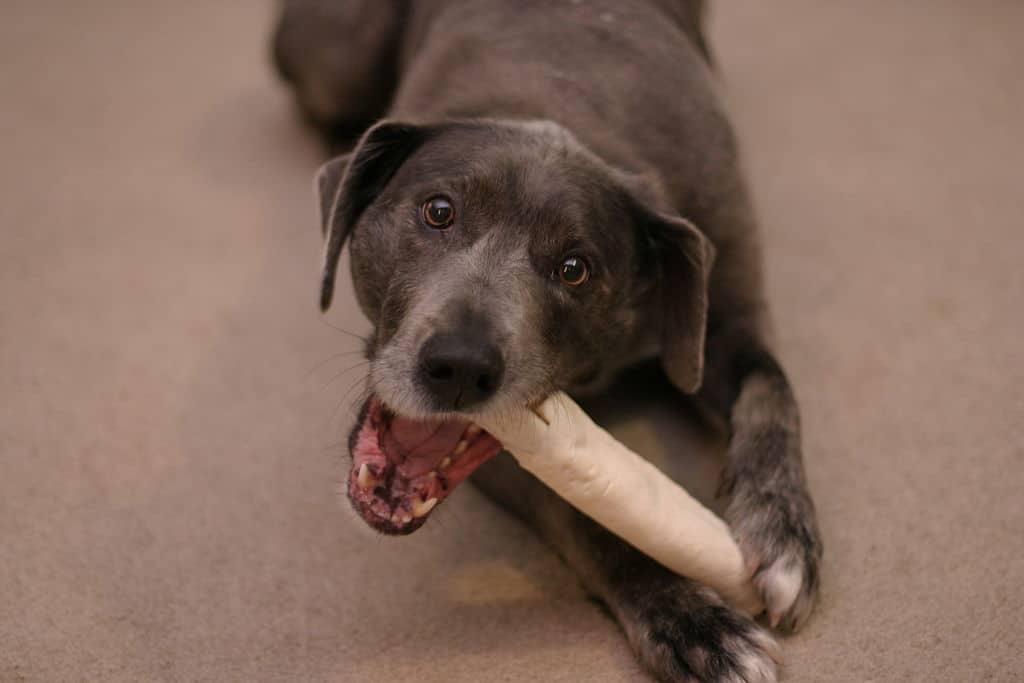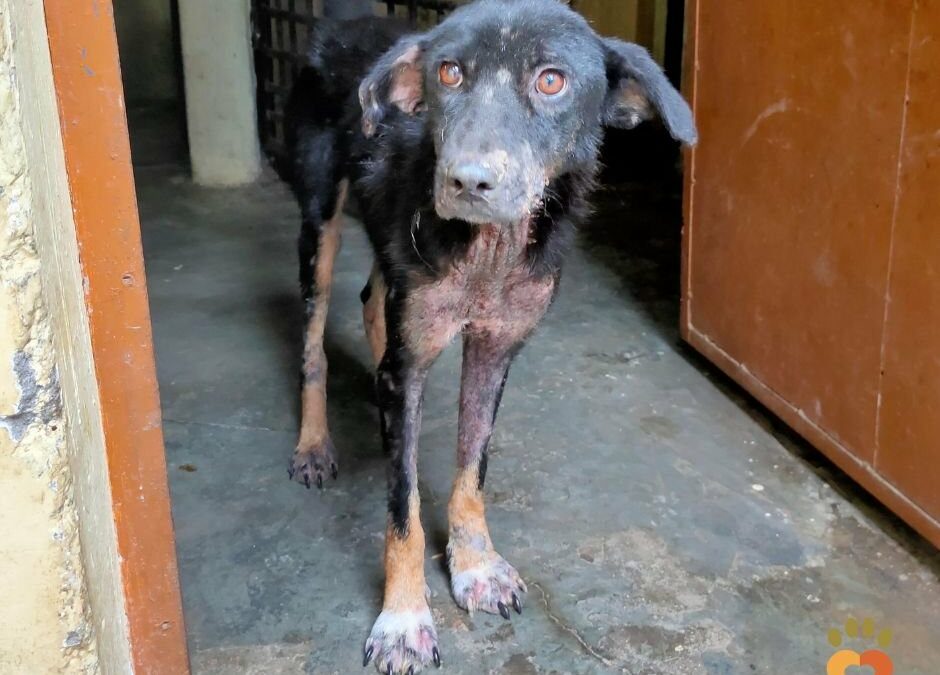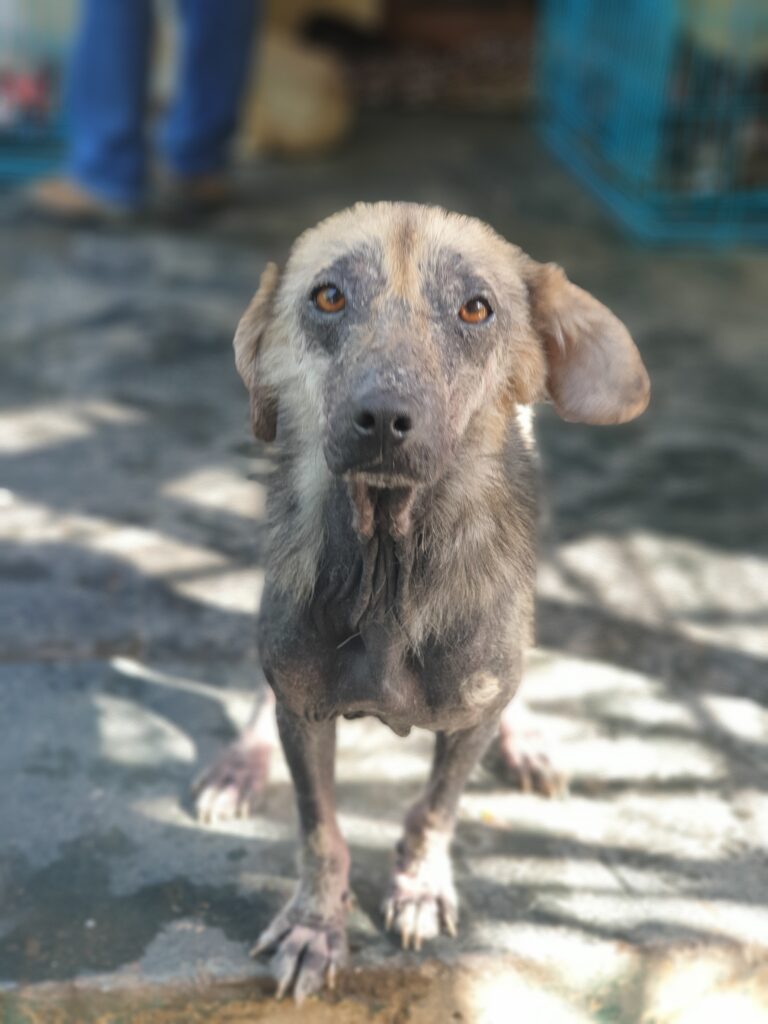Has your doggo been experiencing discomfort due to skin issues recently?
It may be caused by their dog food. Many dog foods cause an allergic reaction in our dogs and we may not even realise it. Several different skin issues can be caused by food allergies in dogs. The most common symptoms include itching, redness, and hair loss.
Some dogs may also develop hot spots or rashes. If your dog is experiencing any of these symptoms, it is important to take them to the vet for a check-up.
It is also important to keep a check on your doggo’s diet if the source of their allergy is food. By making sure you give them yummy, natural and healthy dog treats like crunchy coconut dog treats, you may be able to notice a great change in your dog’s health.
Here are the 8 most common symptoms of skin diseases that dogs may have because of food allergies:
- Itching: When your dog is scratching or licking its skin, it may be a sign of an underlying issue like an allergic food reaction. Excessive itchiness can also lead to further complications like secondary skin infections.
- Inflammation: An allergic condition known as atopic dermatitis is an inflammatory, persistent skin condition that causes inflammation and redness. This is the second most prevalent food allergic skin condition in dogs.
- Head Shaking and scratching due to ear infections: Another common symptom of a food allergy in dogs is ear infections. A dog with a food allergy is likely to suffer from recurrent ear infections. Whimpering, scratching, and head shaking are sometimes the first indications of an ear infection.The ears also turn red, get swollen, and cause pain.
- Facial Swelling: Just like humans, dogs often react to certain food allergens with the telltale signs of facial swelling. This symptom is a definite indicator of food or any other allergy.
- Dry and Flaky Skin: A typical symptom caused due to food allergy, diet, environment, age and exercise, dry and flaky skin is another common skin condition in dogs.
- Bald patches: Your dog will likely shed hair from time to time, occasionally in large amounts. But it is not typical for such shedding to leave your dog with obvious bald areas. This is another symptom of skin disease that may be caused due to food and pollen allergy.
- Pigmented skin: Dogs who have hyperpigmentation have a thickening and darkening of their skin. It is not a particular disease, but rather a response of a dog’s body to certain circumstances like food allergy. Light-brown to black, velvety, rough regions of thickened, frequently hairless skin are indicative of hyperpigmentation.
- Leathery skin texture: This is often caused due to a skin condition called Malassezia Dermatitis where the skin gets leathery and thick. The triggers could be food allergy or fungal infections.
How long does it take for food allergy symptoms to go away in dogs?
It can take a few days to a week for food allergy symptoms to go away in dogs. However, if the underlying cause of the allergies is not addressed, the symptoms may return. Dogs with food allergies may need to be on a special diet and/or medication to help manage their condition.
If your dog is experiencing any of these symptoms, it is important to take them to the vet for a check-up.
To diagnose a skin disease due to food allergies, your veterinarian will likely perform a physical examination and take a history of your dog’s symptoms. They may also recommend blood tests or skin tests. If your dog has a food allergy, it will need to avoid the offending food or foods.
Recovery from skin disease due to food allergies in dogs is possible, but it may take some time. The first step in recovery is to identify the food or foods that are causing the allergic reaction and remove them from the dog’s diet. Once the offending food or foods have been removed, the dog’s skin will begin to heal. The healing process can take several weeks or even months, depending on the severity of the allergy.
During the healing process, it is important to keep the dog’s skin clean and free of irritants. This can be done by bathing the dog regularly with a gentle and natural dog shampoo. If the skin disease is severe, your veterinarian may prescribe medication to help speed up the healing process. With proper treatment, most dogs with skin disease due to food allergies will make a full recovery.
It’s also important to continue feeding your dog natural and healthy vegetarian dog treats! Dogsee Chew brings together not just yummy, nutritious treats but also great health and a BIG smile to your dog. Using ingredients that are only sourced from the freshest orchards along with the finest of cheese, Dogsee chew makes drool worthy doggy treats!

source: https://www.flickr.com/photos/accdistrict/15803557936
Preventative Care Tips
There are a few things you can do to help prevent your dog from developing skin disease due to food allergies. First, be sure to feed them a high-quality diet that does not contain any ingredients that they may be allergic to. You can talk to your veterinarian about which ingredients to avoid.
Second, keep your dog’s skin clean and free of any irritants. Regularly bathe them with a gentle, hypoallergenic shampoo. Be sure to rinse all of the shampoo completely. You may also want to consider using a moisturising conditioner to help keep their skin hydrated.
Finally, make sure your dog gets plenty of exercises. Exercise can help to reduce stress and improve overall health, both of which can help to prevent skin problems.
By following these preventive care tips, you can help reduce the risk of your dog developing skin disease due to food allergies.

Source: https://commons.wikimedia.org/wiki/File:Dog_with_rawhide_chew_toy.jpg
Conclusion
We learnt about the possible causes and symptoms of skin diseases caused by food allergy. Then, we learnt about the most common ways to treat skin disease. We also learnt the importance of using natural products like natural dog shampoos and natural vegetarian dog treats like turmeric mini pops that ensure your dog is getting the right kind of food.
If you did not know what to do when you noticed that your dog has a food allergy and is itching and suffering from ear or skin infections, now you do! Allergies in dogs are more common than you think. You can be confident that you are doing everything possible to prevent flare-ups and maintain your dog’s health and happiness by paying close attention to your dog’s nutrition and consulting a veterinarian.




I have a tiny Chihuahua who has suffered from scratching. Although it took a long time to find out, we have found the cause of her suffering below, which resulted in loss of hair, darkening of skin.
Rawhide chews and any processed chews. and anything process.
Anything processed has had a bad affect on her need to scratch which points to an allergy to the modern dog treats that fill all the stores. We no longer buy this rubbish.
Dogs need NATURAL FOOD. She now has natural food: chicken and vegetables that I save over from our meals. She loves apple, satsuma, banana, tomato, parmesan cheese that I grate in very small amounts onto her dinner occasionally. In addition she likes porridge.
She has cod liver oil daily with a tiny spot of honey and she is now in lovely condition. Her fur is silky and has thickened. Her skin is pink and healthy. She is happy and contented.
Have a 4 month old stray she pup. We give her veg pedigree, khichdi, dal rice, Dalia with soya chunks, milk and occasionally curd.
Is it a proper diet as she seems to be licking herself a lot mainly in her privates. I stay in Mumbai. Where do we get the veg treats you talk about in the article.?
I have a four year old border collie. He has a very thick coat, except on his tail. It is very thin, to the point you can see his skin. He eats Hills Science food with no treats, as he gets diarrhea very easy. I have coated his tail with sulfodene with no results. He gets bathed with shampoo for sensitive skin. Definitely not over bathed.
Any suggestions?